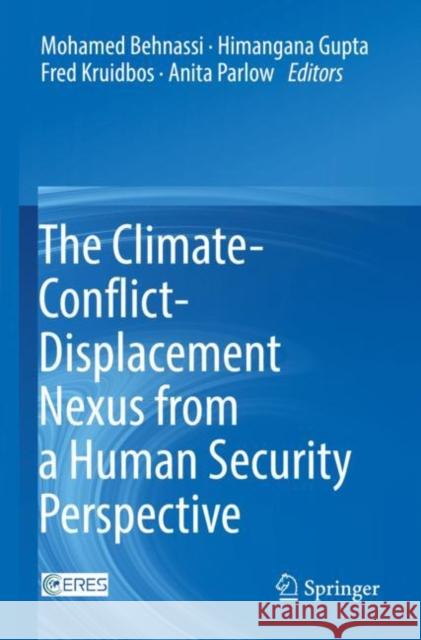The Climate-Conflict-Displacement Nexus from a Human Security Perspective » książka



The Climate-Conflict-Displacement Nexus from a Human Security Perspective
ISBN-13: 9783030941468 / Angielski
The Climate-Conflict-Displacement Nexus from a Human Security Perspective
ISBN-13: 9783030941468 / Angielski
(netto: 575,06 VAT: 5%)
Najniższa cena z 30 dni: 578,30
ok. 16-18 dni roboczych.
Darmowa dostawa!
Foreword 1: Climate Change or Climate Disruption? (Tom Middendorp)
Anita Parlow, Esq., MSt., is a former Fulbright Scholar in Iceland and researcher, the Harvard-MIT Arctic Fisheries Project and Founding Team Lead, the Woodrow Woodrow Wilson International Center for Scholars’ IMO Polar Program. She has taught International Human Rights Law, Arctic Law and Federal-Indian Law, authored two books on Indigenous issues in the United States, and published opeds and articles for the Anchorage Daily News, Arctic Today, The Polar Connection, the University of Maine Oceans Law Review, and the Economist. She recently advised and wrote environmental, social and governance (ESG) and risk assessment reports for: the Port of Nome, Tanana Chiefs Conference – food security; and the Denali Commission – coastal communities and climate. Parlow has also advised companies such as Keystone, TransCanada and Freeport McMoran on ESG matters. Parlow has spoken on Arctic issues in the United States, Northern Europe, Canada, China and Russia. An Oxford post-law graduate in International Human Rights Law and Member of the Bar of the United States Supreme Court, Parlow has conducted pro-bono Mediations at D.C. Superior Court and the D.C. Office of Human Rights.
Climate change is reshaping the planet, its ecosystems, and the evolution of human societies. Related impacts and disasters are triggering significant shifts in the inextricably interconnected human and ecological systems with unprecedented potential implications. These shifts not only threaten survival at species and community levels, but are also emerging drivers of conflicts, human insecurity, and displacement both within and across national borders. Taking these shifting dynamics into account, particularly in the Anthropocene era, this book provides an analysis of the climate-conflict-migration nexus from human security and resilience perspectives. The core approach of the volume consists of unpacking the key dynamics of the nexus between climate change, conflict, and displacement and exploring the various local and global response mechanisms to address the nexus, assess their effectiveness, and identify their implications for the nexus itself. It includes both conceptual research and empirical studies reporting lessons learned from many geographical, environmental, social, and policy settings.
1997-2026 DolnySlask.com Agencja Internetowa
KrainaKsiazek.PL - Księgarnia Internetowa









